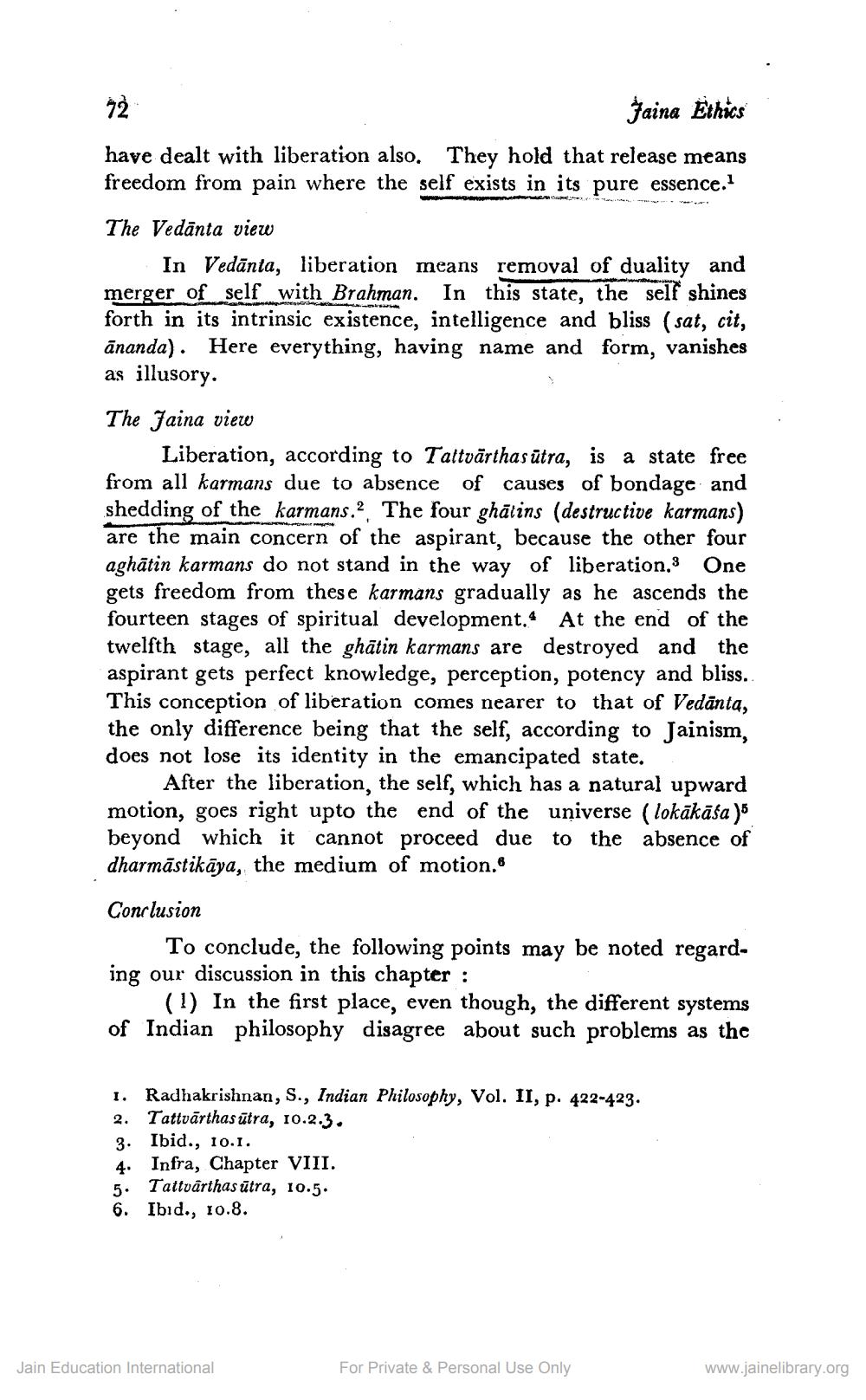________________
Jaina Ethics have dealt with liberation also. They hold that release means freedom from pain where the self exists in its pure essence.
The Vedānta view
In Vedānta, liberation means removal of duality and merger of self with Brahman. In this state, the self shines forth in its intrinsic existence, intelligence and bliss (sat, cit, ānanda). Here everything, having name and form, vanishes as illusory. The Jaina viero
Liberation, according to Tattvārthasūtra, is a state free from all karmans due to absence of causes of bondage and shedding of the karmans. The four ghātins (destructive karmans) are the main concern of the aspirant, because the other four aghātin karmans do not stand in the way of liberation. One gets freedom from these karmans gradually as he ascends the fourteen stages of spiritual development. At the end of the twelfth stage, all the ghātin karmans are destroyed and the aspirant gets perfect knowledge, perception, potency and bliss. This conception of liberation comes nearer to that of Vedānta, the only difference being that the self, according to Jainism, does not lose its identity in the emancipated state.
After the liberation, the self, which has a natural upward motion, goes right upto the end of the universe (lokākāśa)5 beyond which it cannot proceed due to the absence of dharmāstikāya, the medium of motion.
Conclusion
To conclude, the following points may be noted regarding our discussion in this chapter :
(1) In the first place, even though, the different systems of Indian philosophy disagree about such problems as the
1. Radhakrishnan, S., Indian Philosophy, Vol. II, p. 422-423. 2. Tattvārthasūtra, 10.2.3. 3. Ibid., 10.1. 4. Infra, Chapter VIII. 5. Tattvārthasūtra, 10.5. 6. Ibid., 10.8.
Jain Education International
For Private & Personal Use Only
www.jainelibrary.org




